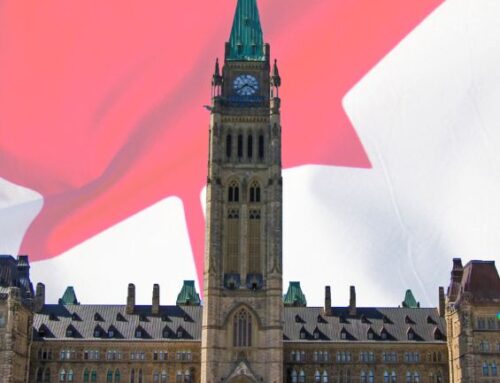In late January, newly appointed Justice Minister Irwin Cotler announced the latest action his government would take in its plan to redefine the institution of marriage in Canadian law. The government, he explained, would be adding a fourth question to the three questions the previous Chretien administration had referenced to the Supreme Court of Canada last summer in regard to the constitutional nature of marriage.
Surprisingly, the new question is the very question that the previous Chretien administration had avoided having the Court answer last summer, when it killed the appeal of the Ontario court decision that initially redefined marriage: “Is the opposite-sex requirement for marriage for civil purposes, as established by the common law consistent with the Canadian Charter of Rights and Freedoms? If not, in what particular or particulars and to what extent?” However, the question is mostly irrelevant now, because even if the court’s judgement comes down in favour of marriage, it will not change the law, anyway.
Cotler admitted as much late January in a private memo to Liberal MPs, in which he wrote, “The opinion of the Supreme Court of Canada in a reference, while advisory in nature and therefore not technically binding, is considered authoritative.”
In fact, the minister is boasting that the government will forge ahead with redefining marriage regardless of what the court eventually says. He wrote, “The government remains of the view that the courts of appeal were correct in their legal conclusions, and that the Charter requires the government to provide equal access to civil marriage to same-sex couples.”
Why, then, add another question to the reference if the government has already prejudged the court? Because, as Cotler stated privately to Liberal MPs, “The Supreme Court had tentatively scheduled April 16, 2004 for a hearing on the reference. However, in light of the additional reference question, it is now likely that the court will decide to delay the hearing, so as to allow the various participants time to prepare their submissions.” The delay will push the hearing past the date of an expected federal election, helping to minimize the political fallout that such a contentious court hearing would create.
Yet, as the new reference question was announced, Prime Minister Paul Martin claimed publicly, “This is not an attempt to delay. This is an attempt to make sure that the fundamental question is on the table (and) Parliament, which must make the final decision, has all the facts at its disposal.”
Phil Horgan, vice-president of The Catholic Civil Rights League told The Interim that in his view, “The government’s request to add a new question to the proposed reference to the Supreme Court of Canada throws a bone to folks. The reality is you can’t help but put this in the context of political machinations surrounding the upcoming election, because this issue will not be decided by the Supreme Court until next year now.”
As he pointed out, “The CCRL sought to do this very thing, to ask this very question, when it sought leave to appeal the Ontario Court of Appeal decision last year, as part of the Interfaith Coalition for Marriage.” That coalition included the Ontario Bishops, the Evangelical Fellowship of Canada and the Islamic Society of North America.
“That application was thrown out by a five-member panel of the Supreme Court on Oct. 8, 2003, without reasons, at the request of the federal government and the couples involved. At the time, the government argued that our groups would interfere with the proposed reference. In particular, we submitted that a complete court record was available and that the government’s existing reference application failed to raise the most important question, as to whether the traditional definition of marriage was unconstitutional,” Horgan said.
He continued, “That appeal, if allowed, would have been argued with all of the affected parties involved by this spring. Moreover, the particular issue of the merits of having courts impose substantial changes to the fabric of Canadian society would have been before the court. Although the Supreme Court acknowledged its jurisdiction to grant leave for this appeal, it decided to quash our application.”
Now, Horgan said, “In a flip-flop from its previous approach, it now appears the government has accepted our submissions and wants the Supreme Court to hear arguments on these issues after all.”
He concluded that, “If we’re going to win on the marriage issue, we really need to shuffle the deck on Parliament Hill by electing politicians who will support constitutional protections for the traditional definition of marriage. The upcoming federal election will allow citizens a chance to engage in their own dialogue with the judges of Canada.”




